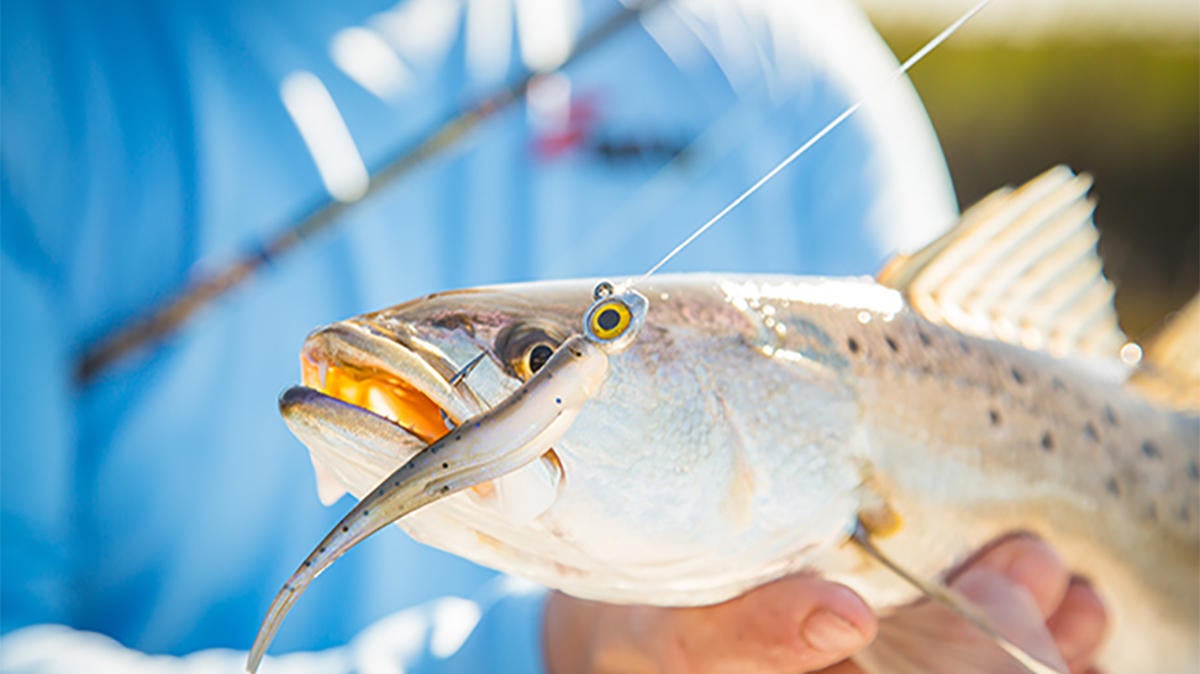For the people behind the phenomenal fish-catching baits at Z-Man Fishing Products, taking caring of the fish and their habitat has always been a primary priority.
“Over the years, Z-Man chairman Jonathan Zucker and I have both played active roles in fishery projects,” says Z-Man president Daniel Nussbaum. “We’re big fans of fishery scientists and the critical work they do to sustain quality fishing opportunities,” he asserts.
Highlighting its pledge to protect natural resources, Z-Man recently announced support of future fishery biologists at the University of Florida (UF). The leading-edge tackle company will provide paid assistantships for three graduate students at University of Florida’s Institute of Food and Agricultural Sciences (IFAS) Nature Coast Biological Station in Cedar Key, Florida. Each graduate assistantship will provide a stipend and full tuition for a Master of Science student to conduct research focusing on improving the sustainability and management of recreational fisheries. In addition, the UF/IFAS College of Agricultural and Life Sciences has agreed to provide matching funds to cover the tuition costs for each student.
Professor Micheal S. Allen, professor of fisheries and aquatic sciences and director of the UF/IFAS Nature Coast Biological Station, says the first graduate student has already been selected. “William Wolfson is passionate angler who met Jonathan and Daniel from Z-Man at this year’s ICAST show. Will’s doing exciting and important work; looking at ways to develop new hook designs that increase post-release fish survival-red drum, seatrout and snook, in particular.”
“Naturally, we’re thrilled to be supporting graduate students who are passionate about the long-term sustainability of our sport,” notes Nussbaum. “Preserving key habitat areas such as Florida’s Nature Coast is vital, and so is research like Will Wolfson’s, who is applying intelligent science to catch-and-release oriented fish hook designs. Pretty cool stuff.”
“Along with the entire Z-Man team, my family and I are thrilled to support this initiative,” says Zucker. “We especially welcome the opportunity to join in support of UF/IFAS Nature Coast Biological Station, which ultimately benefits all recreational anglers- as well as the health of our business.”
The UF/IFAS Nature Coast Biological Station, says Allen, lies at the epicenter of one of the most unspoiled marine shorelines in North America. “Bordering the Gulf of Mexico, the Nature Coast represents almost one-million-acres of undeveloped land in Florida’s ‘big bend’ region,” he notes. “This is a wild, truly special area, largely comprised of forests, prairies and estuaries and nearly free of developed shorelines.
“With most of our work, we’re doing restorations of negatively impacted ecosystems,” says Allen. “But the Nature Coast remains relatively pristine, so our work here is all about helping identify management strategies that can preserve and improve a healthy ecosystem that still needs protection. Among our current projects is the study of oyster reef restoration, the importance of native sea grass for fish and wildlife and environmental factors affecting spotted seatrout populations. A lot of our work bears directly on the sportfishing community, and as anglers, we’re excited about that.”
Presently, Z-Man is also involved in fish management and research projects with the South Carolina Department of Natural Resources Marine Resources Research Institute, the South Carolina Aquarium and Project ReSpeck, an effort to restore native populations of speckled seatrout up and down the South Carolina coastline.
“We plan to stay perpetually involved in fishery research and conservation projects,” says Nussbaum. “Because for us, taking good care of aquatic resources is fundamental to the fishing we all enjoy-it’s actually a big part of Z-Man’s mantra, The Science & Art of Fishing ®.”












